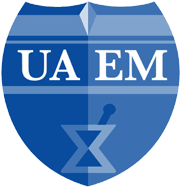UAEM University Neglected Disease and Innovation Symposium
Saturday, November 20, 2010
Hosted by the Program on Information Justice and Intellectual Property
American University, Washington College of Law, Room 603
4801 Massachusetts Ave NW, Washington DC 20016
Kish Wasan will be speaking on the Universities, ND, Product Development Partnerships (PDPs) and Industry Collaborations Panel
This panel will cover specific strategies and barriers to effective collaboration with PDPs and industry, progressive approaches to intellectual property, and ways university policy can encourage a healthy innovation and access environment to facilitate the flow of innovation to application in the developing world.
Dr. Rebecca Goulding will be speaking on the Universities and Open Source Methods Panel
This panel will explore the role and use of open source publishing and R&D methods with an eye to applications in the university environment and ways in which universities can add to such efforts.
UPDATE (MAR 2012)
NGDI UBC and Dr. Kishor Wasan was highlighted in an article published January 2012 on the first Universities Allied for Essential Medicines (UAEM) Neglected Diseases and Innovation Symposium in the American Journal for Tropical Medicine and Hygiene.
To read the article, click here.
Abstract
Universities Allied for Essential Medicines organized its first Neglected Diseases and Innovation Symposium to address expanding roles of public sector research institutions in innovation in research and development of biomedical technologies for treatment of diseases, particularly neglected tropical diseases. Universities and other public research institutions are increasingly integrated into the pharmaceutical innovation system. Academic entities now routinely undertake robust high-throughput screening and medicinal chemistry research programs to identify lead compounds for small molecule drugs and novel drug targets. Furthermore, product development partnerships are emerging between academic institutions, non-profit entities, and biotechnology and pharmaceutical companies to create diagnostics, therapies, and vaccines for diseases of the poor. With not for profit mission statements, open access publishing standards, open source platforms for data sharing and collaboration, and a shift in focus to more translational research, universities and other public research institutions are well-placed to accelerate development of medical technologies, particularly for neglected tropical diseases.